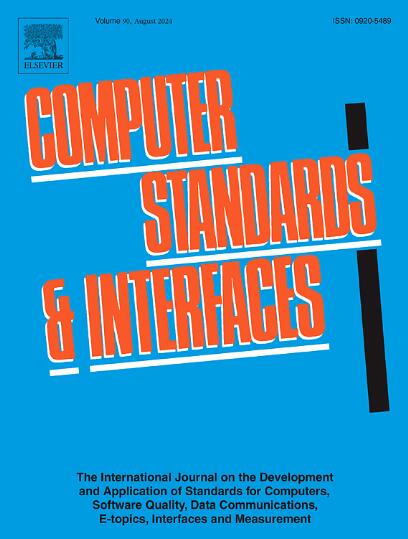EIVBoost: An efficient and interpretable gradient boosting framework for Vertical Federated Learning
IF 3.1
2区 计算机科学
Q1 COMPUTER SCIENCE, HARDWARE & ARCHITECTURE
引用次数: 0
Abstract
The rapid growth of internet data and stringent privacy regulations have posed significant challenges to traditional machine learning methods in multi-party collaborative environments due to data silos. In this context, Vertical Federated Learning (VFL) has emerged as a promising solution. Gradient boosting tree-based VFL schemes, in particular, have gained prominence due to their widespread applicability. However, conventional gradient boosting tree models in VFL settings suffer from notable shortcomings, including high communication overhead from frequent interactions, inefficient utilization of computational resources, limited model interpretability, and privacy leakage risks arising from joint modeling. To address these issues, we propose EIVBoost, a novel gradient boosting tree framework. EIVBoost leverages Function Secret Sharing (FSS) to implement a secure comparison protocol, enabling passive parties without labels to generate pseudo-labels through shared functions and train independently, thereby significantly reducing communication overhead and training time while ensuring privacy. Furthermore, through model simplification and rule extraction, EIVBoost aggregates rules from independent models into a globally interpretable decision tree, enhancing model transparency and inference efficiency. Comprehensive security analyses demonstrate that EIVBoost effectively safeguards data privacy. Extensive experiments on real-world datasets confirm that the framework substantially improves training efficiency without compromising model accuracy, offering a robust, secure, and interpretable solution for VFL.
EIVBoost:一个用于垂直联邦学习的高效、可解释的梯度增强框架
由于数据孤岛,互联网数据的快速增长和严格的隐私法规对多方协作环境中的传统机器学习方法提出了重大挑战。在这种情况下,垂直联邦学习(VFL)作为一种很有前途的解决方案出现了。特别是基于梯度增强树的VFL方案,由于其广泛的适用性而获得了突出的地位。然而,在VFL环境下,传统的梯度增强树模型存在明显的缺点,包括频繁交互带来的高通信开销、计算资源的低效利用、模型可解释性有限以及联合建模带来的隐私泄露风险。为了解决这些问题,我们提出了一种新的梯度增强树框架EIVBoost。EIVBoost利用功能秘密共享(FSS)实现安全的比较协议,使没有标签的被动方能够通过共享函数生成伪标签并独立训练,从而在确保隐私的同时显着减少通信开销和训练时间。此外,EIVBoost通过模型简化和规则提取,将独立模型中的规则聚合到全局可解释的决策树中,提高了模型的透明度和推理效率。综合安全分析表明,EIVBoost有效地保护了数据隐私。在真实世界数据集上的大量实验证实,该框架在不影响模型准确性的情况下大大提高了训练效率,为VFL提供了一个鲁棒、安全和可解释的解决方案。
本文章由计算机程序翻译,如有差异,请以英文原文为准。
求助全文
约1分钟内获得全文
求助全文
来源期刊

Computer Standards & Interfaces
工程技术-计算机:软件工程
CiteScore
11.90
自引率
16.00%
发文量
67
审稿时长
6 months
期刊介绍:
The quality of software, well-defined interfaces (hardware and software), the process of digitalisation, and accepted standards in these fields are essential for building and exploiting complex computing, communication, multimedia and measuring systems. Standards can simplify the design and construction of individual hardware and software components and help to ensure satisfactory interworking.
Computer Standards & Interfaces is an international journal dealing specifically with these topics.
The journal
• Provides information about activities and progress on the definition of computer standards, software quality, interfaces and methods, at national, European and international levels
• Publishes critical comments on standards and standards activities
• Disseminates user''s experiences and case studies in the application and exploitation of established or emerging standards, interfaces and methods
• Offers a forum for discussion on actual projects, standards, interfaces and methods by recognised experts
• Stimulates relevant research by providing a specialised refereed medium.
 求助内容:
求助内容: 应助结果提醒方式:
应助结果提醒方式:


